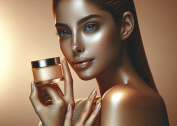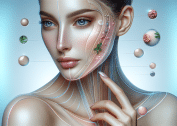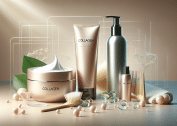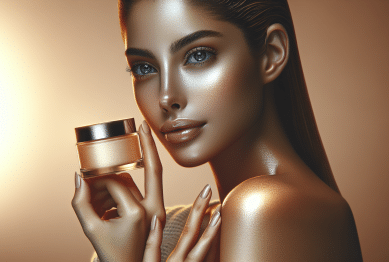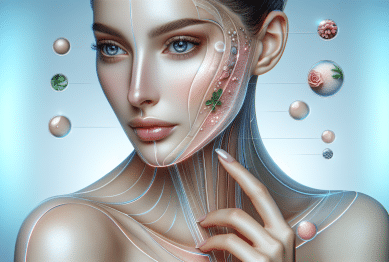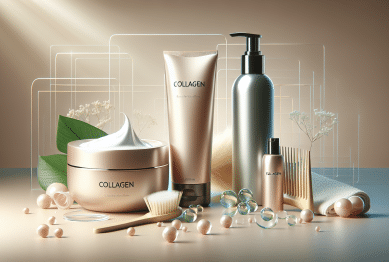Beautiful skin is more than genetics. Unlock glowing skin by exploring daily wellness habits, foods, hydration tips, and science-backed skincare routines. This guide is packed with practical ways to support natural radiance and help you navigate real strategies for lasting beauty.
Daily Wellness Habits That Impact Your Skin
Healthier skin starts with lifestyle. Everything from what you eat to sleep patterns and stress management plays a role in your complexion. Consistent routines bring lasting changes, but one-off fixes rarely offer substantial results. Good skin involves multiple factors harmonizing together. Adopting supportive habits consistently yields the best chance for naturally luminous skin. Avoiding highly processed, sugar-laden food and focusing instead on nutrient-dense options can work wonders over time. Mindful daily practices don’t just support your look — they can help you feel better, too.
Effective stress management translates directly to skin wellness. Chronic stress increases inflammation and may even trigger flare-ups of conditions like acne and eczema. Practices such as mindfulness meditation, exercise, and regulated sleep-wake cycles support not only the mind but also the outer appearance. Even short, daily meditative moments can calm nerves and benefit the skin. Modern science reinforces the stress-skin connection, so incorporating relaxation into your wellness routine is far from superficial.
Rest and recovery is essential. During deep sleep, the body ramps up cell regeneration and repair. Growth hormone released at night stimulates collagen production, which is pivotal for keeping the skin plump and smooth. Missing out on quality sleep often leads to dullness, puffiness, and visible fine lines. Prioritizing adequate rest establishes healthy skin foundations, helping support that sought-after glowing appearance without relying entirely on products. Consider sleep as much a beauty tool as any serum.
Hydration’s Role in Radiant Complexions
Hydration is vital for supple skin texture and a balanced glow. Water acts as the body’s internal moisturizer, supporting all cellular functions. Dehydration slows turnover, causing dryness, flakiness, and a tired look. Drinking enough water helps the body flush toxins, regulate temperature, and maintain elasticity. Even the healthiest skincare regime may fall flat without adequate fluid intake. For most, aiming for steady sips throughout the day fosters ongoing hydration, keeping the complexion refreshed.
Certain foods help retain moisture from within. Fruits and vegetables like cucumber, watermelon, and leafy greens contain high water content and antioxidants that aid overall hydration. Herbal teas, soups, and broths also count toward daily fluid goals. In drier or warm climates, natural humidity levels affect how quickly skin loses moisture, so conscious rehydration is key. Skincare routines featuring hyaluronic acid serums or lightweight moisturizers can further boost surface moisture while supporting the barrier.
Monitor your environment for hydration culprits. Air conditioning and heating systems draw water from the skin, sometimes without warning. Humidifiers in homes or offices can balance indoor air when levels drop, maintaining a comfortable atmosphere for complexion health. Layering skincare with hydrating mists, masks, or overnight treatments also helps reinforce the benefits of mindful water intake. Combining internal and external hydration delivers the most visible results for radiant skin.
Science-Backed Skincare Routines for Glow
Building a simple, science-backed routine elevates the skin’s natural radiance. Gentle cleansing removes debris, sunscreen shields from damaging UV rays, and antioxidant serums defend against pollution. Dermatologists widely recognize that the order and ingredients in skincare matter. Over-cleansing can strip protective oils, while skipping sun protection invites premature aging. Reliable routines consist of just a handful of crucial products, tailored to personal needs and skin type.
Vitamin C is a powerhouse ingredient, with research confirming its ability to brighten the complexion and reduce hyperpigmentation. Topical retinoids are another evidence-based option for improving texture and targeting fine lines. However, introducing potent ingredients should be gradual to prevent irritation. Patch testing, slow increases in frequency, and listening to skin cues can make all the difference (Source: https://www.aad.org/public/everyday-care/skin-care-basics/care/building-a-skin-care-routine).
Exfoliation is powerful but must be balanced. Physical scrubs can be too harsh for sensitive types, while chemical exfoliants like lactic acid or glycolic acid gently dissolve dead skin and promote turnover. Dermatologists recommend exfoliating no more than two to three times weekly. Overdoing it may disrupt the skin barrier, leading to redness and breakouts. Gentle, steady approaches support a vibrant, even glow over time, making patience part of any healthy routine.
Eating for Better Skin and Overall Wellness
The connection between nutrition and skin health is well documented. Antioxidant-rich foods protect cells from free radical damage, while healthy fats strengthen the outer barrier. Diets high in fresh produce, nuts, seeds, and omega-3-rich fish offer broad benefits. Reducing sugary, high-glycemic options also helps keep inflammation in check, supporting clear, resilient complexions. Eating for skin isn’t about perfection but about persistence, variety, and color on the plate.
Certain vitamins are particularly helpful. Vitamin A found in carrots and spinach encourages cell turnover, vitamin E from avocados and almonds shields against oxidative stress, and zinc supports healing. Those with acne-prone skin may benefit from reducing dairy or choosing lower-lactose dairy sources, as some evidence links dairy to breakouts. Generally, the closer a meal is to its “whole” form, the more likely it is to nurture vibrant skin from within (Source: https://www.hsph.harvard.edu/nutritionsource/skin-health).
Gut health and skin health are closely connected. Probiotic-rich foods like yogurt and fermented vegetables support robust gut flora, which research suggests may reduce inflammation and contribute to healthier skin. Prebiotic fibers in foods such as bananas, oats, and onions further fuel these beneficial bacteria. Focusing on real, plant-forward, and nutrient-dense choices can gradually reveal clearer, brighter skin. What you eat matters for beauty beyond the mirror.
Addressing Common Skin Concerns Naturally
Many people deal with sensitive, breakout-prone, or aging skin. Rather than chase aggressive fixes, gentle, supportive care builds long-term resilience. Using fragrance-free cleansers and non-comedogenic moisturizers minimizes irritation. Sun avoidance, protective clothing, and broad-brimmed hats reduce exposure and support a lasting even tone. Those with sensitive types may benefit from options like ceramides, colloidal oatmeal, or panthenol, all shown to soothe the skin barrier (Source: https://www.aad.org/public/diseases/eczema/eczema-resource-center/products).
For breakouts, less is often more. Overusing products can spark more redness or clogged pores. Consistent, gentle routines with spot treatments containing salicylic acid or benzoyl peroxide occasionally help manage mild acne without overwhelming the skin. Stress reduction, balanced nutrition, and routine hygiene support skin’s ability to heal without harsh intervention. Tracking triggers — whether diet, products, or lifestyle — reveals patterns to address gradually rather than overnight.
Aging and environmental factors are inevitable, but healthy habits can minimize visible changes. Regular exercise stimulates circulation, bringing oxygen and nutrients to skin cells. Prioritizing antioxidant-rich skincare and foods defends against oxidative stress, helping preserve tone and firmness. Viewing aging as a natural, graceful process allows healthy strategies to work in harmony with time, unlocking confidence in your own skin at every stage of life.
Holistic Approaches and Mindset for Inner and Outer Glow
Glowing skin isn’t just about topical routines; it’s also about mindset and self-care. Practicing gratitude, managing anxiety, and developing healthy relationships have a noticeable impact on overall well-being, which reflects in your complexion. Chronic anxiety or negative thought patterns can show up as flare-ups or persistent sensitivity. Integrating gentle movement, mindful breathing, or journaling can become as valuable as any serum or cream in maintaining a luminous presence.
Bodywork therapies like facial massage, lymphatic drainage, or yoga may improve circulation and help reduce facial puffiness. Research is emerging, but many users report feeling renewed after integrating these self-care elements. Consistency is key—simple facial exercises, gentle tapping, or rolling routines can reinforce relaxation and blood flow. Treating wellness as a lifestyle, not just a product, delivers sustainable radiance over quick fixes.
True beauty is multidimensional. Enjoying time outdoors, finding creative outlets, or embracing new challenges can reignite your sense of vitality. When you feel empowered and supported by your daily practices, your skin will often reflect that inner health. Rather than striving for unattainable perfection, shifting your focus to self-compassion and positive habits brings both inner and outer glow — the most authentic beauty secret of all.
References
1. American Academy of Dermatology. (n.d.). Building a skin-care routine. Retrieved from https://www.aad.org/public/everyday-care/skin-care-basics/care/building-a-skin-care-routine
2. Harvard T.H. Chan School of Public Health. (n.d.). Skin health. Retrieved from https://www.hsph.harvard.edu/nutritionsource/skin-health
3. National Eczema Association. (n.d.). Moisturizers and eczema. Retrieved from https://nationaleczema.org/eczema/treatment/moisturizers/
4. Sleep Foundation. (n.d.). Sleep and skin health. Retrieved from https://www.sleepfoundation.org/physical-health/how-sleep-affects-your-skin
5. Mayo Clinic. (n.d.). Adult acne: Symptoms, causes and treatment. Retrieved from https://www.mayoclinic.org/diseases-conditions/acne/symptoms-causes/syc-20368047
6. Cleveland Clinic. (n.d.). Collagen: What it is, uses, and more. Retrieved from https://my.clevelandclinic.org/health/articles/23089-collagen

